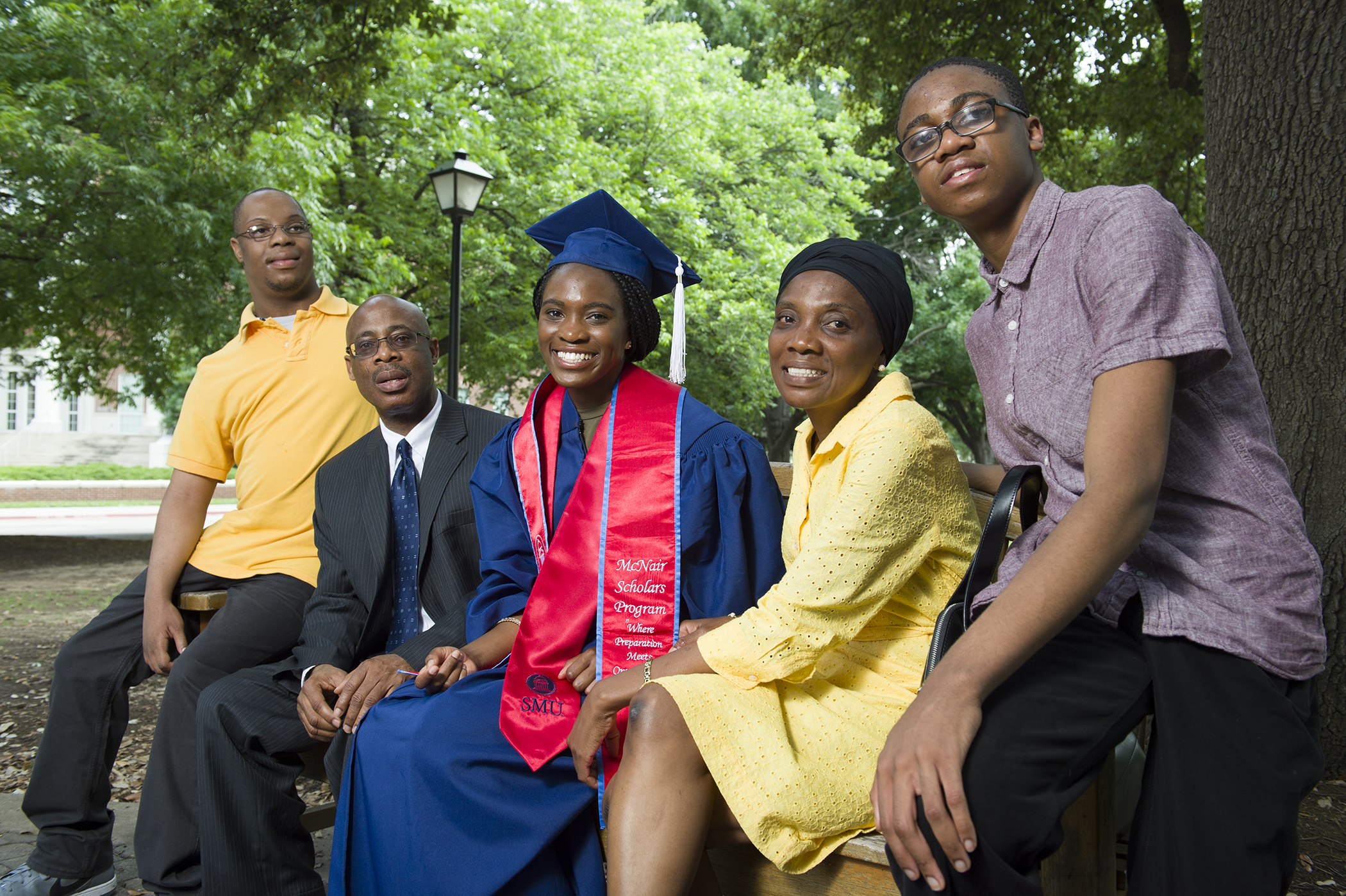Little brother inspires SMU graduate
When Yewande Dada crosses the stage to receive her SMU diploma, she'll be searching the audience for one person – her little brother, Femi. He is the inspiration for her student research, volunteer activities, and her plan to become a doctor.
DALLAS (SMU) – When Yewande Dada crosses the stage to receive her SMU diploma, she'll be searching the audience for one person – her little brother, Femi. He is the inspiration for her student research, volunteer activities, and her plan to become a doctor.
|
|
"His struggles growing up didn't seem right or fair," Yewande says. "Children like Femi have something to offer, they need the right resources to help them be the best they can be.”
Yewande has been preparing to help people with intellectual disabilities since eighth grade when she became part of SMU's STEMPREP program – a 10-year mentoring and training program for minority students interested in science and engineering careers. A STEMPREP internship at Texas Scottish Rite Children’s Hospital opened her eyes to the field of developmental and behavioral pediatrics.
At SMU, in addition to earning a degree in psychology and completing her pre-med requirements, she conducted original research to determine if iPads helped children with intellectual disabilities stay on task with learning activities.
Active in campus ministries, a mentor to other SMU students and foster children, Yewande also volunteered at Night OWLS at Highland Park United Methodist Church, a respite program for families of children with special needs.
"I would like go to medical school to understand the biological and biochemical factors that influence intellectual disabilities and practice medicine in a very collaborative way with families," she says.
"I remember the first time Femi realized he was 'different.' He walked around the rest of the day with his head hanging low, bringing me to tears," Yewande recalls."In my eyes, it is society that disables children like Femi. We need to better understand the potential of children like him and provide the resources necessary to ensure their potentials are fulfilled."
